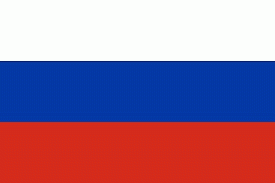A landmark congressional "informal" hearing convened today by House Ranking Member of the Judiciary Committee and former Chair, John Conyers, confronted head-on the crisis in U.S.--Russia Relations. Open to the public and attended by Judiciary Committee members Reps. Barbara Lee, Charles Rangel, and Jerrome Nadler, among others, the hearing spanned issues from Ukraine to Syria and asked, "Is Congress Overlooking Its Causes and Potential Solutions?"
The highly distinguished panel included, among others, former U.S. Ambassador to the USSR Jack Matlock, Princeton University and NYU Professor emeritus Stephen F. Cohen, Duke University Professor emerita Ellen Mickewicz, and former CEO of Procter and Gamble and Chair of the Walt Disney Company John Pepper. Former U.S. Senator and Presidential candidate Bill Bradley was unable to attend. All of the panelists comprise the Founding Board of the American Committee for East--West Accord, whose concern is the possibility of a new Cold War and how to improve the worsening relations between the U.S. and Russia. The mission of this "newly refounded" organization is to provoke discussion on an issue that is largely absent from the conversation on Capitol Hill.
Duties of the Judiciary Committee are widespread, was a half-hearted way of asking why this crucial question had not been taken up by other more "relevant" bodies like the House Committee on Foreign Relations or Homeland Security. I figured that some sort of history was being made today. Might GOP leadership in Congress have something to do with this negligence? Do some politicians want a Cold War II, which would easily be worse than the first one? It would be located on the border between Russia and Ukraine. Why leave such matters in the hands of politicians at all? joked Chairman Conyers at one point.
The crux of the issue is that the U.S. and Russia share a lethal threat, ISIS. It would seem elementary to assume that they should be cooperating in eliminating it, rather than participating in it separately, risking violent consequences from military interactions. Other existential exigencies like climate change and terrorism in general should be addressed cooperatively by these two world powers.
Members of the panel as well as Chairman Conyers, all "on Medicare," referred back to the dreaded air-raid drills of the fifties, a metonymy for the horrors of the Cold War, those "decades of fear," as Conyers phrased it. Remember the Cuban Missile Crisis? Vital funding was diverted from domestic use to waging war or arming ourselves in that direction. According to Putin himself, the myth that he wants to recreate the Russian empire is false, even though most ethnic Russians now live outside of the Federation. The Cold War fear of Russia's desire for a worldwide proletariat society is ancient history.
The discussion about expanding NATO, begun in the early nineties and excluding Russia, and the invasion of Serbia a decade later, without congressional authorization, provoked Russia even as its forays into Georgia and Ukraine and most lately into Syria have ignited U.S. tension. Both powers violated international law, with the U.S. taking the lead. The policy of open communication instead of provocation was the initial outcome of U.S.--Russia communications once the USSR became history. We negotiated the end of the Cold War in 1991. We must return there.
There is no real national security without Russia's cooperation. The horrendous possibility of nuclear materials or toxic chemicals falling into the hands of terrorists is an additional threat. There must be a U.S.--Russia alliance. Russia wants to negotiate. We also need help from China. We have enough real enemies.
What happened to the rules of nuclear restraint we had in the seventies? Instead there is demonization of Russian President Vladimir Putin as a "neo-imperialist aggressor." History will view him differently. Are there not two sides of every story, as our mothers used to ask us? What happened to another vital principle, compromise, meeting the Other halfway? It's not too late to try again.
The narrative surrounding the dissolution of the USSR was that the U.S. had "beaten" Russia. The truth is that its collapse occurred internally.
Proctor and Gamble is still doing business with Russia, said John Pepper, and Russia is open to investment. Everyday Russian people share our concerns. Added Professor Mickewicz, half the people don't vote, cynical about what this act in their country can accomplish. TV is all lies; they look to foreign media, uninterested in empire or the Soviet era. Neither is Ukraine of interest to Russians, including those who are highly educated. Half the Russians think that their country should negotiate with the U.S.
The last question of the day was from Chairman Conyers: Where are our allies in this context? Europe is very divided, as well as extremely distracted by the hundreds of thousands of refugees coming in from Syria as well as Iraq and Afghanistan. The EU tends to see two layers of Europe, said Mickewicz--the "old Europe" and the newer countries broken off from the USSR. Said Cohen, Angela Merkel has led Europe up until this crisis, now challenged by her own co-partisans as well as France and Hungary. Dramatic changes are afoot as she attempts to deal with the refugee crisis.
Germany is tilting toward Russia now even as it was a strong ally of the U.S. The Social Democrats, the other strong party in Germany, are more oriented toward the East. Russia may ally itself with China and Germany in a few years.
Chairman Conyers thanked all of the participants for this two-hours-long "concentrated view of a very complex subject."
(Note: You can view every article as one long page if you sign up as an Advocate Member, or higher).







